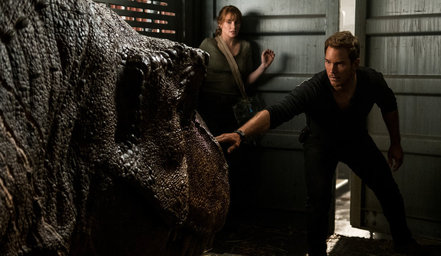Review: "BlacKkKlansman"
As we approach the 30th anniversary of Spike Lee's masterpiece, Do the Right Thing, it seems a fitting time as ever to reflect on the maddening lack of recognition the filmmaker's pictures have earned at the Oscars over his more than three decades in the industry.
Do the Right Thing should have been a Best Picture contender, not the recipient of a mere pair of nominations in Best Supporting Actor (Danny Aiello) and Best Original Screenplay. Likewise, Lee's extraordinary Malcolm X was a far greater achievement than the tedious likes of A Few Good Men and Scent of a Woman, both Best Picture nominees in 1992. Alas, it too scored just two nominations, for Best Actor (Denzel Washington) and Best Costume Design (Ruth E. Carter, only of only two African Americans to ever grace the category).
His 1997 documentary 4 Little Girls aside, no other Lee pictures have earned recognition on Oscar nominations morning.
Three years since his scoring of an Honorary Oscar, Lee's middling fortunes with members of the Academy seem destined to take another positive turn with this year's release of BlacKkKlansman, a picture that was warmly received at the Cannes Film Festival and stateside has earned Lee some of his best reviews in years.
Should BlacKkKlansman indeed prove the toast of this year's awards season, I will be delighted to see Lee bask in his return to critical and commercial favor...even if I happen to think the film isn't quite among his best work.
In fact, for my money at least, BlacKkKlansman opens on a stunningly dismal and unfunny note with an introduction from Dr. Kennebrew Beauregard (Alec Baldwin, mercilessly hamming it up), who delivers a rambling presentation on the supposed science behind white superiority. Though this intro is thankfully brief, it hints at the picture's central problem to come - the comedy of BlacKkKlansman is generally broad and distracting.
Its true story, however, is a fabulous one - of how in the early 1970s, Ron Stallworth (John David Washington) is hired as the first black detective in the Colorado Springs Police Department. Miserable in his first assignment, working in the records room, Stallworth successfully requests a transfer to go undercover and is assigned to infiltrate a local civil rights rally.
Ultimately, Stallworth is reassigned to the department's intelligence division and it is there that he concocts a wild mission to bring down the Klu Klux Klan. He calls the local chapter, pretending to be a white supremacist keen on joining the ranks, and manages to win them over. Of course, Stallworth cannot attend their shindigs in-person, so he recruits his white, Jewish co-worker Flip Zimmerman (Adam Driver) to join in the cause.
Stallworth makes so much progress, he ends up having regular phone conversations with none other than David Duke (Topher Grace), the infamous Grand Wizard of the KKK. Members of the local chapter, however, become gradually suspicious of Zimmerman, whose stories don't always match up with Stallworth's from over the phone. Such doubts come amidst the chapter's plans for a violent attack on a civil rights rally, which coincides with a visit by Duke to Colorado Springs.
BlacKkKlansman sports no shortage of profoundly powerful moments, including masterful monologues delivered by Corey Hawkins (as the towering civil rights leader Stokely Carmichael) and the incomparable Harry Belafonte. And if the picture itself is uneven, it at least beautifully serves as a star-making vehicle for Washington, who is flat-out fantastic as Stallworth and nicely matched with Driver, who has never been better. Laura Harrier leaves a nice impression too as Patrice Dumas, the president of the black student union who becomes romantically involved with Stallworth, even if her character feels insufficiently fleshed out.
Yet, all too much of BlacKkKlansman also left me sighing.
The Klansmen, as portrayed by Ryan Eggold, Paul Walter Hauser and Jasper Paakkonen, among others, are less terrifying or menacing (or interesting) than they are Saturday Night Live caricatures of white supremacists, a batch of dopey buffoons who seem liable at any moment to shout, "dey terk er jerbs!" The picture is ultimately a tonally haphazard blend of labored comedy and compelling drama from a filmmaker who's delivered sparkling comedies and sublime dramas but doesn't quite nail a fitting blend here.
Warts and all, BlacKkKlansman is ultimately worthwhile for Washington and Driver and, on occasion, Lee, who isn't at his sharpest here but still packs a punch here and there.
B










